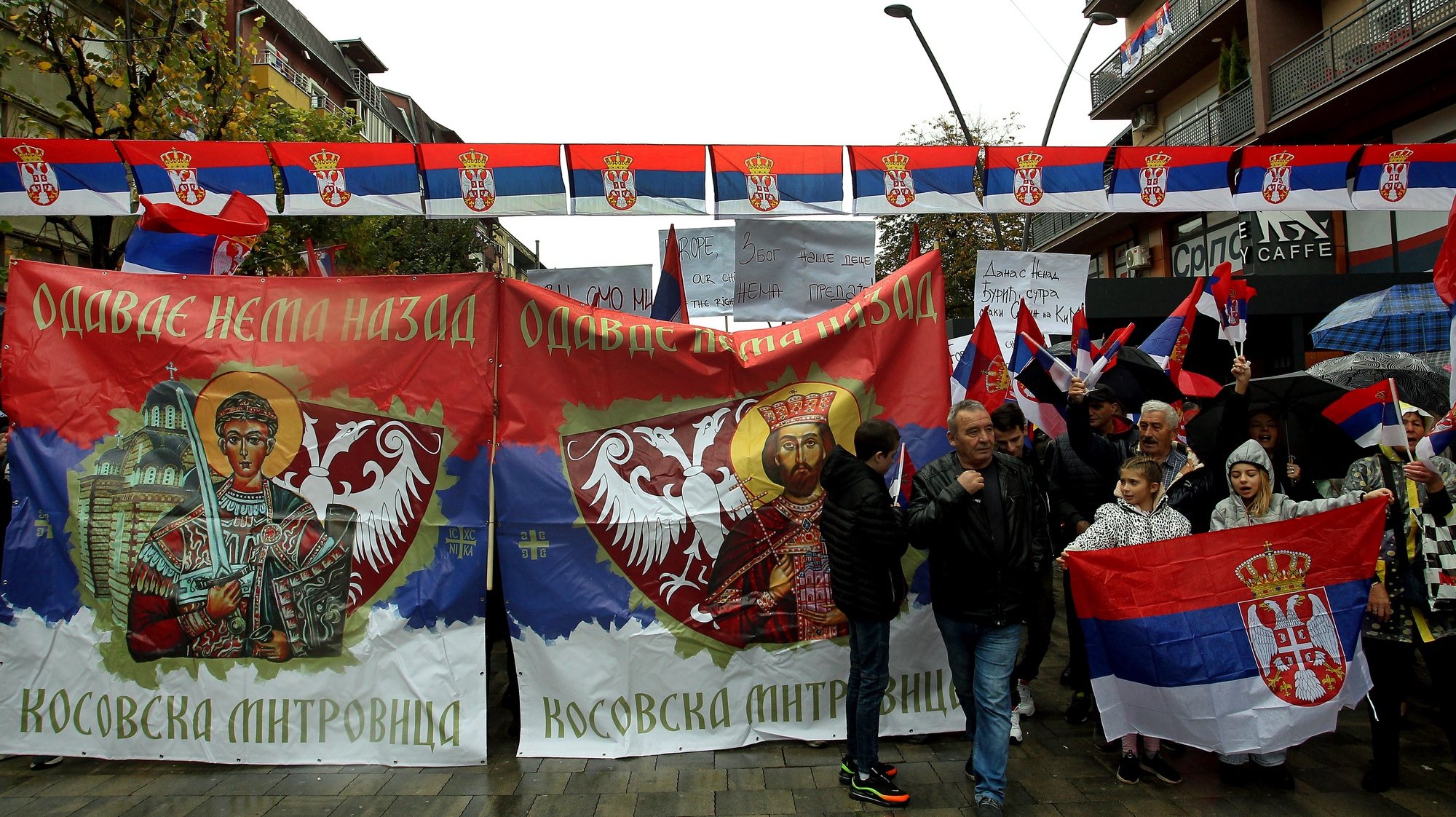Russia and France on Monday expressed “concern” over rising tensions in Kosovo, with Moscow and Paris blaming each warring party separately for the weekend incidents.
Russian Foreign Ministry spokeswoman Maria Zakharova warned of the “new worsening of the situation in that region of Serbia” and said that the situation is being monitored “24 hours a day”, denouncing the “series of provocations moved by the Pristina authorities with the connivance of the United States and the European Union”.
According to Moscow, the purpose of the “provocations” is “clear”, and aims to “take control of the non-Albanian northern regions of the province.”
“Due to the resistance of the Kosovar Serbs, who have the support of Belgrade, major incidents have been avoided so far,” the spokeswoman for Russian diplomacy said.
Zakharova blamed the deterioration of the situation “on the leaders of the Kosovars” and their Western “protectors”, in particular Washington, and He considered that the current situation demonstrates the “resounding failure” of European mediation to resolve the conflict.
At the same time, France indicated that it was “very concerned” about tensions in northern Kosovo and the “unacceptable” attack on European Union (EU) police forces that took place on the night of Saturday to Sunday.
“France is very concerned about the situation in northern Kosovo and strongly condemns the unacceptable attack on the EULEX Kosovo mission and the acts of violence on the ground,” the Foreign Ministry said in a statement.
Paris called on the parties to the conflict to exercise “the greatest possible restraint and show responsibility to reduce tensions.” The communiqué also recalls France’s support for the European mediation between Serbia and Kosovo, which should allow “advancing towards a global agreement”, and urges “its parties to return to dialogue”.
The high representative for foreign policy of the EU, Josep Borrell, also urged today the leaders of Serbia and Kosovo to adopt measures to reduce tension and considered the blockade of roads by the Kosovar Serbs in the municipalities of Zvecan “worrying”. and Leposavic, with numerous heavy vehicles near two important crossing points on the border with Serbia.
At the same time, hundreds of local Serbs were trying to prevent the Kosovar police from transporting to Pristina a former Kosovar Serb policeman who had been detained on suspicion of organizing “terrorist acts”.
EU police deployed to the region as part of EULEX said they had been hit by a deafening grenade, which caused no injuries.
And a few hours after the roadblocks began, police are said to have come under fire on Saturday night. three successive attacks with firearms on one of the access roads to the border, with no report of injuries.
On Sunday, in a message on Twitter, Borrell urged the Kosovar Serbs to “immediately” remove the barricades erected on the roads.
The president of Kosovo, Vjosa Osmani, announced in parallel the postponement to April 2023 of the elections in the north of Kosovo, scheduled for next Sunday, a decision justified by the increase in tensions, and that the main Serb party said that intended to boycott
In Belgrade, the Serbian President, Alexandar Vucic, also reacted to the situation and announced that he will formally request authorization from the NATO forces stationed in Kosovo (Kfor) to send Serbian soldiers and policemen to his former province, to protect the Serb population. local. with resolution 1244 of the UN Security Council”.
Inter-Serbian tensions between Kosovo and Serbia have escalated in recent months to levels not seen for several years.
Belgrade never recognized Kosovo’s unilateral secession in 2008proclaimed after a war that began with an armed Albanian rebellion in 1997 that caused 13,000 deaths, mostly Albanians, and led to a NATO military intervention against Serbia in 1999, despite the UN.
Since then, the region has registered sporadic conflicts between the two main local communities, in a country with a third of the surface of the Alentejo and about 1.7 million inhabitants, the great majority of ethnic Albanians and Muslims.
Independent Kosovo has been recognized by around 100 countries, including the United States, which retains strong influence over the Kosovar leadership, and most EU member states, with the exception of Spain, Romania, Greece, Slovakia and Cyprus.
Serbia continues to consider Kosovo as an integral part of its territory and Belgrade benefits from the support of Russia and China, which like dozens of other countries (including India, Brazil and South Africa) have not recognized Kosovo’s independence either.
The EU considers that the normalization of relations between Serbia and Kosovo is a prerequisite for possible accession.
Source: Observadora
